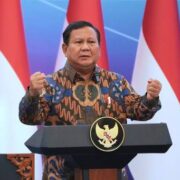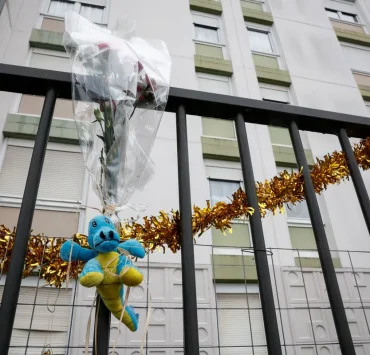9 rebels dead in Army’s Christmas Day operation
ILIGAN CITY—Nine suspected communist rebels were killed in a military operation in Malaybalay City, provincial capital of Bukidnon, on Christmas Day, the start of a two-day ceasefire declared by the Communist Party of the Philippines (CPP).
The early dawn offensive was launched in the hinterland villages of Can-ayan, Kibalabag and Kulaman and Mapulo, according to Brig. Gen. Michele Anayron, commanding officer of the Army’s 403rd Infantry Brigade, who organized the troops from the 8th Infantry Battalion, 88th Infantry Battalion and 1st Special Forces Battalion.
Maj. Gen. Jose Maria Cuerpo II, commanding general of the Army’s 4th Infantry Division, told the Inquirer that the rebels appeared to be preparing for a gathering to celebrate the CPP’s 55th anniversary when they were attacked by government troops.
Cuerpo said six of the fatalities were men and the rest were women, but their identities had yet to be established.
He also said that they (military) were expecting a high-ranking member of the CPP to join the party’s anniversary celebration in Malaybalay.
No truce from gov’t
The CPP on Dec. 23 declared a unilateral ceasefire on Dec. 25, in solidarity with the country’s Christmas celebrations, and on Dec. 26, the party’s anniversary.
The ceasefire “aims to allow the peasant masses and NPA (New People’s Army) units in their area to conduct assemblies, meetings or gatherings to celebrate the Party’s anniversary, look back at past achievements, and pay tribute to all heroes and martyrs of the Philippine revolution,” the CPP said.
But the government had ruled out a truce with the rebels. On Sunday, Jonathan Malaya, spokesperson for and assistant director general of the National Security Council, said the government had learned its lesson from past ceasefires which the rebels used to regroup while keeping up hostile actions.
He noted further that the rebels “themselves admitted that they will try to hold assemblies, meetings, or gatherings, which is why they have been adamant in demanding a ceasefire from government forces.”
Malaya also quoted National Security Adviser Eduardo Año as saying that there would be no suspension of military operations.
But Senate Minority Leader Aquilino Pimentel III criticized that decision, saying it was “not good for the planned peace talks [since it] doesn’t build trust and it shows mistrust.”
CPP spokesperson Marco Valbuena said the rebels were not expecting the Armed Forces of the Philippines to reciprocate their unilateral ceasefire.
‘Rush of military troops’
He also said, when asked about the military’s Bukidnon operation, that the CPP was still “awaiting verification” of that development.
Anayron said the military used close air support and artillery to minimize casualties among ground troops, since landmines could be scattered in the area.
He added that the communities there “were not put in danger and no properties were damaged or destroyed during the operations.”
The rebels scampered to different directions amid the Army’s attack, Anayron said.
Residents in Malaybalay took to social media to inquire about “the explosions” that began at 3 a.m. and the “rush of military troops” to the hinterland villages.
Can-ayan is 18 kilometers away from the city center in Malaybalay; Kibalabag, 32 km.; Kulaman, 50 km; and Mapulo, 40 km.
The Army seized five M16 assault rifles with one attached to an M203 grenade launcher, a 12-gauge shotgun, a .45-caliber pistol, and a hand grenade.
Cuerpo said there would be no letup in the operations, so “the option left for them (the rebels) is to lay down their firearms.”
He added that the remains of those killed would be turned over to the city government of Malaybalay so their families could claim them.
The AFP said the recent success in its counterinsurgency operations followed a series of “tactical victories” in different parts of Caraga and Northern Mindanao regions.
In July this year, government troops killed Dionisio Micabalo, 61, alias “Muling,” who is said to be the secretary of the North-Central Mindanao Regional Committee of the CPP and one of the party’s senior cadres in Mindanao.
Micabalo’s death leaves Myrna Sularte, alias “Maria Malaya,” as the remaining senior CPP official in the region, the military said.
Peace talks, amnesty
The military estimates the NPA to be down to around 1,800 fighters from an estimated strength of 26,000 in 1986, the twilight of the dictatorship of Ferdinand Marcos Sr., the current President’s father and namesake.
That regime is often cited as the purpose of the communist movement. But on Nov. 28, the government of the younger Marcos and the National Democratic Front of the Philippines (NDFP), the political arm of the CPP-NPA, issued a joint communique stating that both sides were ready to start anew peace negotiations, which have stalled for almost four decades under six administrations.
NDFP negotiating panel chair Julieta de Lima, widow of the late CPP founder Jose Maria Sison, said it was “very significant that the son of the late dictator Marcos acceded to resumption of peace negotiations.”
Mr. Marcos, a week earlier, had issued amnesty proclamations to communist insurgents and other rebels.
Spanning more than half a century, the communist rebellion in the Philippines has become the world’s longest running insurgency. The NPA was founded on March 29, 1969. —REPORTS FROM DIVINA M. SUSON, RYAN D. ROSAURO, RICHEL V. UMEL, DELFIN T. MALLARI JR., FRANCES MANGOSING AND MELVIN GASCON INQ
















